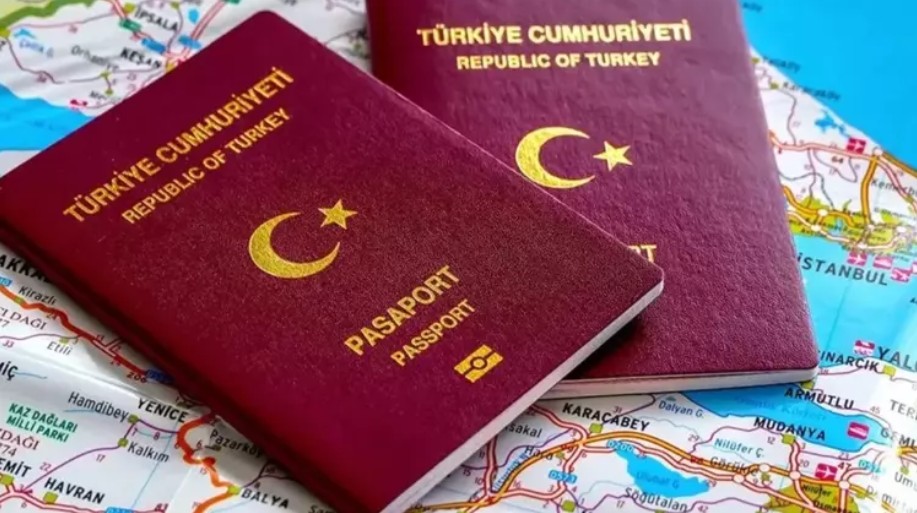

Can the elimination of terrorism threats in Türkiye via politics solve the visa issue with the EU?
Turks, who have turned their faces towards the West for decades, have been facing visa restrictions for nearly fifty years. Almost everyone has a positive or negative visa story to tell. As the difficulties reached their peak, the European Union took a step forward. The EU’s decision last week to adopt a more positive approach to short-term (Schengen) visa applications from our citizens (1) was welcomed by many, but it was also noted that this was not enough. In particular, our citizens, who have been forming long queues at EU missions in recent years, have been submitting visa applications with no idea when or how they will receive a response, and which are generally rejected.
Unequal treatment
These applications involved high fees, which were not refunded even if the applications were rejected. According to calculations by the İstanbul-based Economic Development Foundation, Turkish citizens have paid a total of 775 million euros in visa fees over the past 15 years to travel to Europe. This is a staggering figure. In a way, this is an indirect contribution to the EU budget from our country. Aside from the financial aspect, even if a positive response was received, the visas issued in recent times were single-entry and short-term. Even if you had previously obtained a visa, you were treated as if you were applying for the first time.
Visa denial justifications
The EU side, on the other hand, cited the restrictions imposed due to COVID-19 as the reason for the difficulties in issuing visas, claiming that there was a significant backlog in visa applications and that they were unable to keep up due to insufficient staff at their missions. However, even if some of these reasons were valid, the main reason was that EU countries had identified that individuals who had entered their countries legally, i.e., by obtaining a visa, either applied for asylum or did not return.
Exemptions
However, as complaints from citizens who did not engage in such behaviour increased, the EU finally took a small step to ease the situation. On the other hand, the decline in asylum applications in recent years may also have had an impact. Thus, it was decided that Turkish citizens who had previously used their visas legally would be granted multiple-entry visas if they met the conditions. First-time applicants are not covered by this provision. On the other hand, Turkish truck drivers applying for visas for professional purposes have not been included in this regulation due to their different risk profile. One of the obstacles that emerged during the negotiations to update the Customs Union with the EU was the ability of our truck drivers to travel within the EU. Austria and France, in particular, oppose this request.
Hardships continue
The bottom line is that Turkish citizens still need a visa to travel to the Schengen area. First-time applicants and students will once again have to queue up and go through tedious procedures. Those who will benefit from this new application are those who have previously obtained a visa and those engaged in trade within this framework. The hardship for others will continue. We will also see how this decision will be implemented.
What should the Turkish government do?
The Turkish government’s primary task now is to take action to secure visa exemption. As you will recall, during the 2015–2016 refugee crisis, the EU was expected to take several steps in exchange for Türkiye’s efforts to stem the flow of refugees. These included financial contributions, high-level dialogue, updating the Customs Union, opening certain negotiation chapters, and granting visa exemption.
There were 72 criteria that Türkiye had to meet for visa exemption to be granted. As of May 2016, 66 criteria had been met. The then Prime Minister Ahmet Davutoğlu had given instructions for the remaining six criteria to be met as soon as possible. If these were met, visa exemption was targeted to be granted by October 2016 at the latest.
About the 2016 deal
At that time, even if we met the criteria, the number of people in our country who believed that the EU would grant visa exemption was few and far between. As Türkiye’s representative to the EU, I was one of them. People said that the EU would find some excuse. However, the European Commission, which was responsible for assessing whether the criteria had been met, was working closely with us and was preparing to give a positive opinion. In the subsequent stages, approval from member states would be required, but unanimity was not mandatory. In short, certain member states would not be able to block it. When it came to the final stage, which is approval by the European Parliament, the atmosphere was in our favor.
The European Commission even recommended to the EU Council and the European Parliament that the EU Regulation No. 539/2001 be amended to lift the Schengen visa requirement for our country.
Shooting ourselves in the foot
But we shot ourselves in the foot again. Prime Minister Davutoğlu’s political career was cut short, and then the 15 July 2016 coup attempt took place, causing the atmosphere on the EU side to change. Not only were the remaining criteria not met, but the restrictions imposed as part of the measures taken against the illegal Gülenist organization, FETÖ, led the EU to backtrack. No progress has been made since then. Ankara has only occasionally stated that we deserve a visa exemption.
When the visa issue was raised again some time ago, the Minister of Foreign Affairs announced that ‘only’ six criteria remained. Six criteria that have not been met in nine years!
Here are the six criteria
This is where the issue of terrorism mentioned in the title of this article comes into play. The six criteria that must be met are as follows:
– Adoption of legislation necessary to implement the recommendations made by GRECO (the Council of Europe’s Group of States against Corruption) in a total of four evaluation rounds, particularly about the financing of political parties, immunities, bribery, and the independence of the judiciary.
– Harmonisation of legislation on the protection of personal data with EU standards, in particular ensuring that the institution to be established acts independently and that the activities of law enforcement agencies are subject to the law,
– Negotiation of an operational agreement with Europol,
– Ensuring effective judicial cooperation in criminal matters with all EU member states,
– Updating legislation and practices on combating terrorism in line with European standards,
– Implementing all provisions of the EU-Türkiye Readmission Agreement. (2)
Can “Terror-free Türkiye” help?
The most important factor preventing Ankara from taking action here was the amendments to the counter-terrorism law. In May 2016, the EU Commission stated, ‘Make some minor changes that will not affect your fight against terrorism, and we will accept them.’ Various drafts were prepared for this purpose. However, the obstacles in our country could not be overcome. Now, with the elimination of the terrorist threats, can steps be taken in this regard? Furthermore, can a climate of relief and peace be established for those who are constantly accused of ‘aiding and abetting a terrorist organisation’ for even the slightest statement they make?
Not getting easier
However, it should not be forgotten that the situation is not the same as it was nine years ago. Even if the required conditions are met and the European Commission gives the green light, as stated above, the approval of the member states and the European Parliament will also be required. Although these last two stages are not easy in the current situation, we can reach a point where we can exert more pressure on the EU by demonstrating that we have fulfilled the conditions. On the other hand, Türkiye must also comply with the visa regime applied by the EU to third countries.
In the meantime…
While Türkiye has granted visa exemptions to some EU countries for a long time, it has continued to require visas for others. However, on March 2, 2020, it lifted visa requirements for all EU countries except South Cyprus. In return, it has not gained anything. In contrast, our citizens are not only required to go through visa procedures to travel abroad, but also have to pay a ‘foreign travel tax.’ In short, our citizens face double trouble in order to travel abroad.
Türkiye could introduce an electronic travel authorisation programme (travel permit) for visitors travelling to Türkiye without a visa, similar to the European Travel Information and Authorisation System (ETIAS) to be implemented by the European Union, in exchange for a certain fee. In this way, the foreign travel tax may be waived.
Not everyone will rush to Europe
It is now essential to prioritize the removal of restrictions on the fundamental personal right of our citizens to travel freely. As the world changes rapidly, remaining within Türkiye’s borders prevents us from benefiting from the changes and new ideas emerging globally. Furthermore, some of the criteria that must be met contain elements that are beneficial to our country.
There is a misconception, both on the EU side and on ours, that everyone will travel abroad once visas are abolished. What is important here is gaining the opportunity to exercise this right. I believe that once our citizens gain the freedom to travel to any country they wish at any time, the psychological urge to travel abroad will also decrease.
Notes:
(1) This decision applies to the following 24 EU Member State missions: Austria, Belgium, Bulgaria, Croatia, the Czech Republic, Estonia, Finland, France, Germany, Greece, Hungary, Italy, the Netherlands, Latvia, Lithuania, Luxembourg, Malta, Poland, Portugal, Romania, Slovenia, Slovakia, Spain, Sweden. Denmark has incorporated the Schengen acquis into its national law, making this decision binding under international law. Ireland, however, is not party to the Schengen arrangements and is therefore exempt from this decision. Iceland, Norway, Switzerland, and Liechtenstein, which are part of the Schengen acquis, are covered by this decision. Southern Cyprus is outside the Schengen area.
(2) The Readmission Agreement was previously in force, but Ankara suspended it as a result of the EU’s sanctions against Türkiye.


